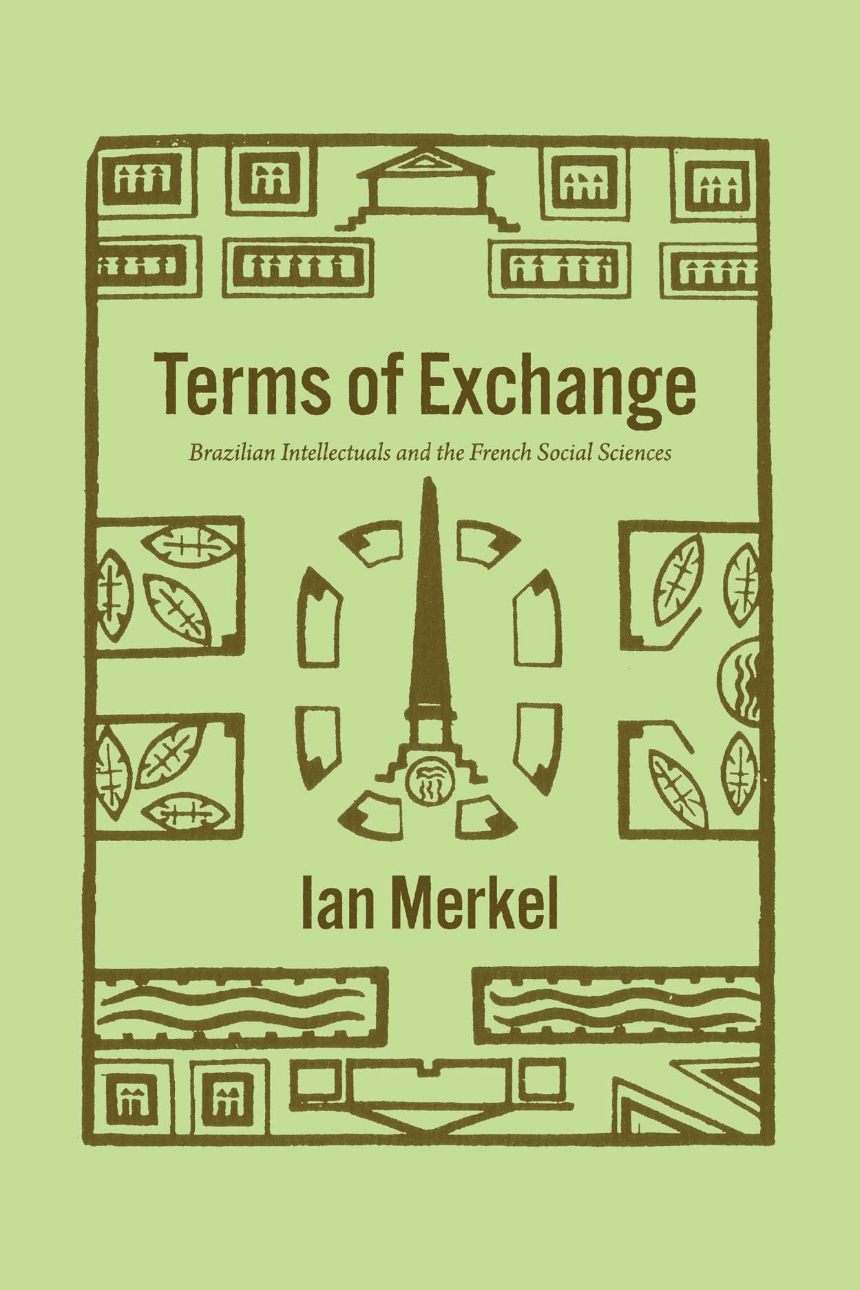Terms of Exchange
Brazilian Intellectuals and the French Social Sciences
9780226819792
9780226819365
9780226819372
Terms of Exchange
Brazilian Intellectuals and the French Social Sciences
A collective intellectual biography that sheds new light on the Annales school, structuralism, and racial democracy.
Would the most recognizable ideas in the French social sciences have developed without the influence of Brazilian intellectuals? While any study of Brazilian social sciences acknowledges the influence of French scholars, Ian Merkel argues the reverse is also true: the “French” social sciences were profoundly marked by Brazilian intellectual thought, particularly through the University of São Paulo. Through the idea of the “cluster,” Merkel traces the intertwined networks of Claude Lévi-Strauss, Fernand Braudel, Roger Bastide, and Pierre Monbeig as they overlapped at USP and engaged with Brazilian scholars such as Mário de Andrade, Gilberto Freyre, and Caio Prado Jr..
Through this collective intellectual biography of Brazilian and French social sciences, Terms of Exchange reveals connections that shed new light on the Annales school, structuralism, and racial democracy, even as it prompts us to revisit established thinking on the process of knowledge formation through fieldwork and intellectual exchange. At a time when canons are being rewritten, this book reframes the history of modern social scientific thought.
Would the most recognizable ideas in the French social sciences have developed without the influence of Brazilian intellectuals? While any study of Brazilian social sciences acknowledges the influence of French scholars, Ian Merkel argues the reverse is also true: the “French” social sciences were profoundly marked by Brazilian intellectual thought, particularly through the University of São Paulo. Through the idea of the “cluster,” Merkel traces the intertwined networks of Claude Lévi-Strauss, Fernand Braudel, Roger Bastide, and Pierre Monbeig as they overlapped at USP and engaged with Brazilian scholars such as Mário de Andrade, Gilberto Freyre, and Caio Prado Jr..
Through this collective intellectual biography of Brazilian and French social sciences, Terms of Exchange reveals connections that shed new light on the Annales school, structuralism, and racial democracy, even as it prompts us to revisit established thinking on the process of knowledge formation through fieldwork and intellectual exchange. At a time when canons are being rewritten, this book reframes the history of modern social scientific thought.
272 pages | 9 halftones | 6 x 9 | © 2022
Anthropology: Cultural and Social Anthropology
History: European History, History of Ideas, Latin American History
Reviews
Table of Contents
List of Figures
Introduction
Chapter 1: São Paulo, the New Metropolis with a French University
Chapter 2: Atlantic Crossings and Disciplinary Reformulation
Chapter 3: Getting to Know Brazil: The New Country behind the Methodology
Chapter 4: Four Approaches to Global and Social-Scientific Crisis
Chapter 5: Brazil and the Reconstruction of the French Social Sciences
Chapter 6: Racial Democracy, Métissage, and Decolonization between Brazil and France
En Guise de Conclusion
Acknowledgments
List of Abbreviations and Archives
Notes
Index
Introduction
Chapter 1: São Paulo, the New Metropolis with a French University
Chapter 2: Atlantic Crossings and Disciplinary Reformulation
Chapter 3: Getting to Know Brazil: The New Country behind the Methodology
Chapter 4: Four Approaches to Global and Social-Scientific Crisis
Chapter 5: Brazil and the Reconstruction of the French Social Sciences
Chapter 6: Racial Democracy, Métissage, and Decolonization between Brazil and France
En Guise de Conclusion
Acknowledgments
List of Abbreviations and Archives
Notes
Index
